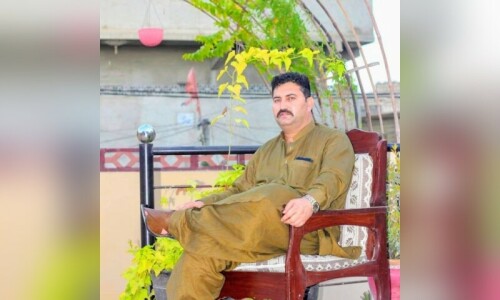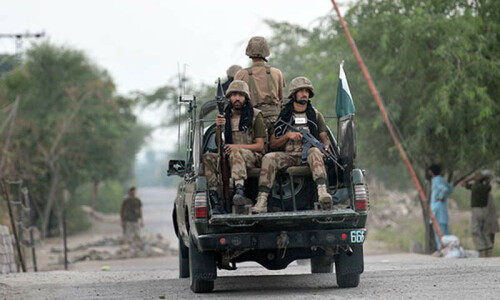ISLAMABAD: The World Health Organisation (WHO) has conducted a study to declare Islamabad Pakistan’s first ‘healthy city’ and add it to the list of healthy cities around the world.
Islamabad Directorate of Health Services Director General Dr Hasan Orooj made the announcement during an event to inaugurate the Public Health Emergency Operation Centre on Monday. He said that efforts are being made day and night to make the city safer, adding that Islamabad has been registered in the WHO’s healthy city programme.
Dr Orooj told Dawn that 40 cities have been registered in this programme to date, and 15 have been declared ‘healthy cities’.
“The WHO holds a study to analyse whether a city has the potential to become a healthy city. A number of indicators are analysed during studies which are held from a third party. In the study conducted to analyse Islamabad, mother and child health, facilities for disabled persons, functioning of institutions, health, quality of water, sanitation, environment, etc have been declared benchmarks,” he said.
Process will take four years and will include analysis of a number of indicators, including water quality and facilities for disabled people
He added that the WHO would assess services over four years to issue a certificate of a healthy city.
“In the baseline study, it is pointed out that there is an issue of human resource and some technical issues. However, it has been observed that there is leadership in institutions so things can be improved. In simple words, the city has to be made compatible with its residents,” he said.
He said a healthy city model was launched in Islamabad in 2013, which is why the WHO has conducted the study through a third party.
“We will have to work hard to get the certification of a healthy city. There are issues of water quality, infectious diseases control, a complete ban on smoking in public places, etc,” he said.
To a question, Dr Orooj said that Tehran and Sharjah have been declared healthy cities, and Islamabad has the potential to become the first in Pakistan.
“There has to be health equity in the cities and resources should be distributed evenly. Donor agencies from the West invest billions of dollars in developing countries to ensure that [the West remains] safe. For instance, if polio exists in developing countries, the virus can spread to developed countries,” he said.
Speaking earlier at the Public Health Emergency Operation Centre, Dr Orooj said that this is the first operation room in the country that will address various emergencies, and has been developed with extremely limited resources.
He said it has the potential to expand and work under unified command and control.
“This unique model is feasible to prevent Covid-19, dengue, challenges posed by polio, the Expanded Programme of Immunisation or other public health calamities,” he said.
Discussing the response to the Covid-19 pandemic, Dr Orooj said the Directorate of Health Services has eight teams that are part of the trace, test and quarantine system, carrying out sampling, health education, coordination, quality assurance, verification and community screening.
“Likewise, we feel pride in sharing that the burden of dengue patients has been less than 10 times from the surrounding areas in urban Islamabad in the last nine years. Islamabad has been polio free for the last 14 years. All of this is owed to the special blessings of God but the hard work of workers, supervisors, inspectors, vaccinators, and frontline professionals is the core behind this success,” Dr Orooj said.
WHO Country Head Dr Palitha Mahipala praised the concept and establishment of the integrated Public Health Operation Centre at the Directorate of Health Services in the Metropolitan Corporation Islamabad.
He said the core role of public health surveillance is to control disease.
Published in Dawn, October 20th, 2020
















































